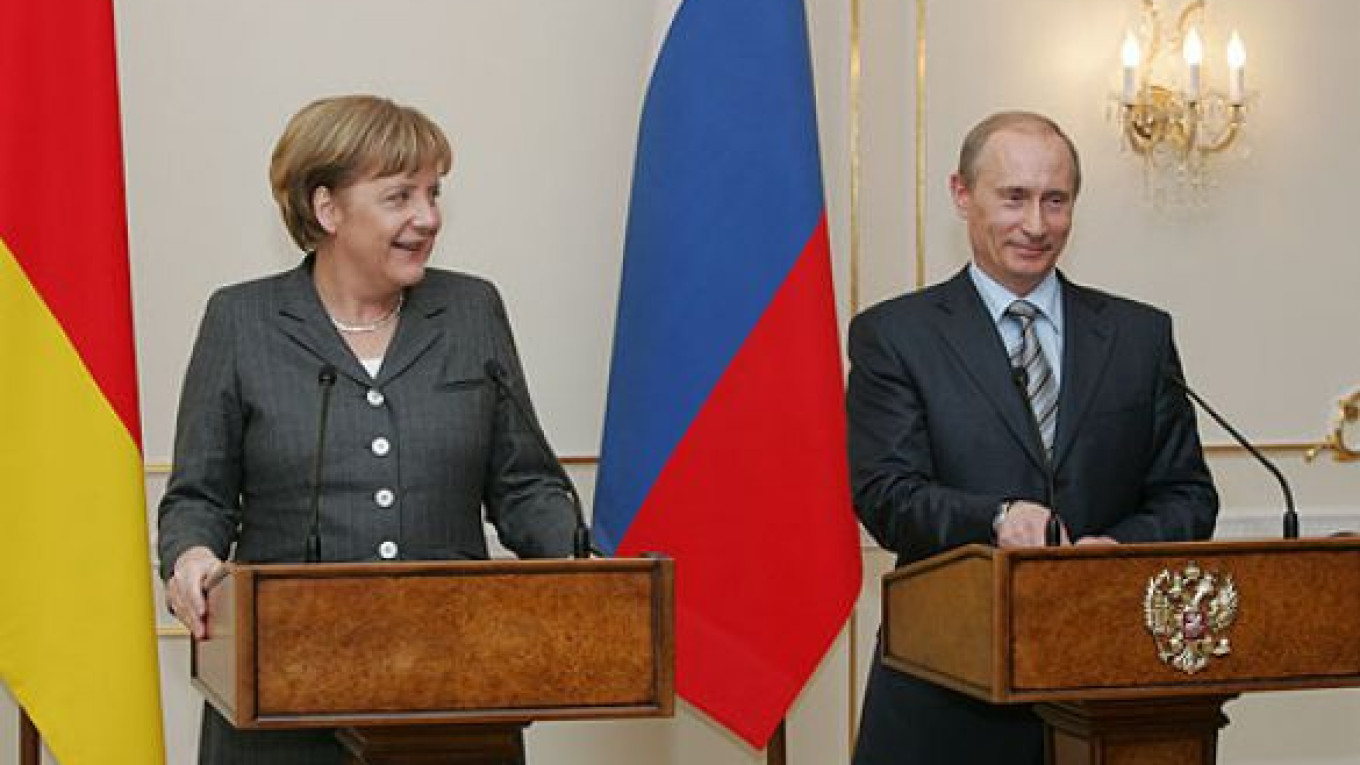President Vladimir Putin told German and British leaders that Russia wants to ease the crisis in Ukraine, but insisted that a planned Moscow-backed referendum on whether Crimea should join Russia was within international law, the Kremlin has said.
In separate telephone calls with British Prime Minister David Cameron and German Chancellor Angela Merkel, the Russian leader said Sunday that the "steps taken by the legitimate leadership of Crimea are based on the norms of international law and aim to ensure the legitimate interests of the peninsula's population," the Kremlin said in a statement.
Putin also accused the Ukrainian government of failing to do anything to stem the "racket by ultra-nationalist and radical forces in the capital itself and in many regions," the statement posted on the Kremlin's website said.
Cameron urged Putin to organize direct talks between the governments of Russia and Ukraine and seek a diplomatic solution to the crisis, while stressing the need for "all Ukrainian people" to be involved in choosing their country's future at the presidential election scheduled for late May, a Downing Street spokesperson said.
Germany delivered a harsher rebuke, with Merkel telling Putin that the planned March 16 referendum in Crimea on whether the peninsula should join Russia "violated the Ukrainian Constitution and international law," the German government said in a statement, Reuters reported.
Putin and the two European leaders agreed that it was in their common interests to ease the tensions, "despite the differences in the assessments of the events," the Kremlin said.
Russia has dispatched troops to Crimea and has established effective control over the peninsula. While Moscow has cited the need to protect the large Russian-speaking population there from Ukrainian nationalists, clashes flared up Sunday when pro-Moscow activists and Cossacks attacked a group of Ukrainians in Sevastopol.
A Message from The Moscow Times:
Dear readers,
We are facing unprecedented challenges. Russia's Prosecutor General's Office has designated The Moscow Times as an "undesirable" organization, criminalizing our work and putting our staff at risk of prosecution. This follows our earlier unjust labeling as a "foreign agent."
These actions are direct attempts to silence independent journalism in Russia. The authorities claim our work "discredits the decisions of the Russian leadership." We see things differently: we strive to provide accurate, unbiased reporting on Russia.
We, the journalists of The Moscow Times, refuse to be silenced. But to continue our work, we need your help.
Your support, no matter how small, makes a world of difference. If you can, please support us monthly starting from just $2. It's quick to set up, and every contribution makes a significant impact.
By supporting The Moscow Times, you're defending open, independent journalism in the face of repression. Thank you for standing with us.
Remind me later.


